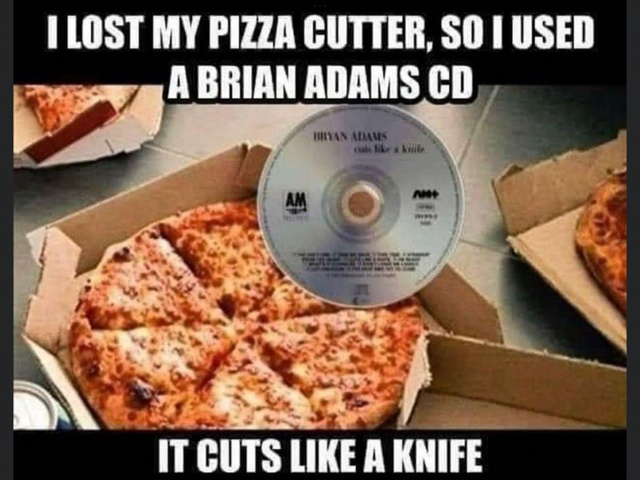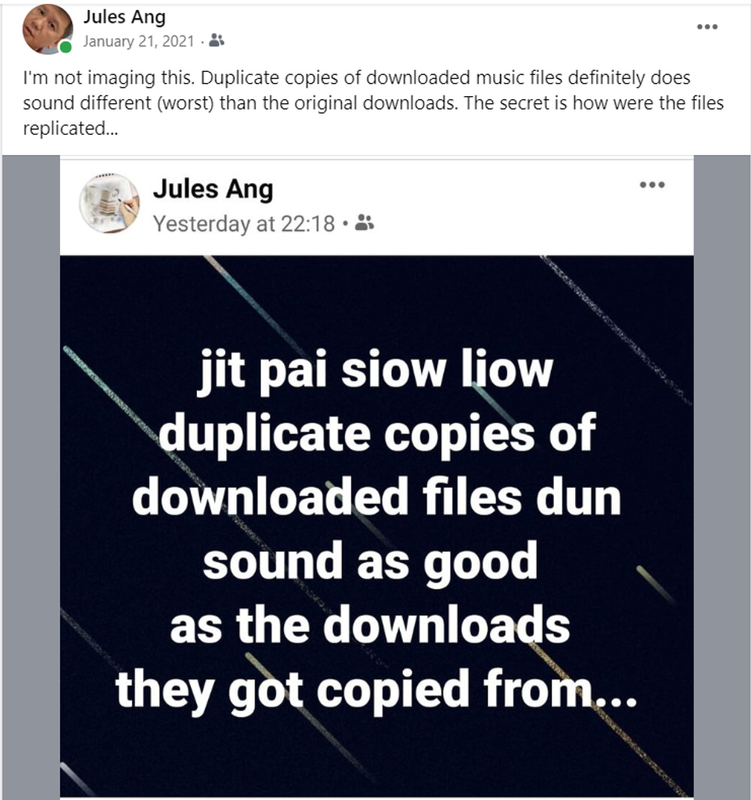Excuse me for off-topic, This is my personal opinion about Objective measurements vs Subjective Listening .
I am Electronics Engineer from KNTU university (Tehran, Iran) so I am not against scientific approach.
The Objective vs Subjective debate is an old debate , some notes come to my mind :
In Electronics The true objective modeling of Audio Equipments is not easy, It is so much complex because of non-linearity.
you know in electronics all thing simplified to linear model but in real world all electronic parts (even a resistor) are non-linear.
modeling non-linear parts is very complex and measurements are related to simplified mathematical modeling.
I believe if we hear different sound (for example two digital cable or ...) then we can measure the difference but measuring by simplified model do not give us enough information.
non-linear systems have so much more parameters to measure and it is not easy.
if the subject was simple and we had a mathematical modeling of both equipments and human hearing system then we had answers of many questions but in real world it is very complex.
we can not measure all parameters of non linear systems as a black box in real world. If you simplify then yes you can measure but simplified approach will not answer our questions.
I guess the only way to have agreement between subjectivist and objectivist is advancing measurement methods.
Music is very Complex signal and our perception is also very complex and the audio systems are nonlinear and complex systems.
What we hear is a very complex process and if you want to look at this subject from your Measurement devices you should advance your methods.
If you passed signal systems books in university then you know measuring non linear systems is not easy.
about non linear system identification as black box :
https://cyberdoc.univ-lemans.fr/theses/2009/2009LEMA1009.pdf
Audio systems and music signal are both complex.
if simple measurements can not answer our questions then we should go for more accurate more complex measurements to get our answers.
- I believe in measurements.
- Audio equipments are Nonlinear systems
- Music signal is not simple tone
- Human hearing is not simple linear system
I had many many blind tests in past and the result was obvious for myself that not all but many things are not snake oil and Ican hear how those things change the sound. I also had many tests between A and B that i could not easily detect the difference (blind test) and i never upgraded A to B. If you are trained listener and if you have high performance transparent audio system and good room acoustics and good ac quality and you can professionally find best location for speakers (maximum dynamics) then you can hear differences in blind test.
As i am engineer i believe in measurements but not in your simplified model.
Some notes :
Part 1: Audio measurements and mathematics model of audio systems
if you read Electromagnetic books like cheng (
https://www.amazon.com/Field-Wave-Electromagnetics-David-Cheng/dp/0201128195) then you can answer me and have a conversation about this subject, if not then you should read this book first.
this book is about 4 maxwell equations of E and B (
https://en.wikipedia.org/wiki/Maxwell's_equations) . this is macro model of electronics science. when you want calculate the parameters of this equations then you need to simplify the parameters up to your accuracy range.
for example in simplified model of circuits we do not model 1m cable and we imagine the 1m cable is like short circuit.
when you need more precise model you should calculate the impedance of 1m cable.
in simplified model all C are constant and all L are constant and all R are constant and we model all of it as a linear simple system.
all capacitor dielectrics are non-linear , all resistors are non-linear all coeficient of equations are non-linear and for precise mode you should go for very very complex equations that only super computers could give you numeric analysys of equations.
if you want to have precise model you can not choose simple electronics model of V and I .
if you use maxwell equations for non-linear audio system then all cables will be different and all capacitors are not equal.
in real world that so many parameters like non-static impedances , vibration , ac quality , noise and ... will change the system response then the final equation will be even more complex. it is not hard to undrestand that maxwell equations will tell you all cables all capacitors and even two simple resistors and ... are not equal . all transports are not equal (bits are ok but waveform of digital signal is different), all dacs are not equal and ...
an engineer knows for measurements of non-linear system as "black box" you can not measure all parameters of non-linear systems easily. check these links and Volterra series.
en.m.wikipedia.org
https://cyberdoc.univ-lemans.fr/theses/2009/2009LEMA1009.pdf
all of measurements published in ASR forum are based on simplified models of audio system and if you see no differnce between cables then you should advance your measurements. simplified measurements and rating audio components by SINAD is useless and it is like judging humans only by their weight.
for example in measuring Jitter if you show the jitter as a number then it is not the whole story and it is more complex than a simple number. some designers like Ed meitner designed special tools for jitter measurement (Logic Induced Modulation Detector).
when you play music and listen to A vs B the sound signal pass through many non-linear stages and it is better to measure the final output of loudspeakers.
conclusion: measurements can show you differences
Part 2: Human Hearing
Human hearing is very complex and both the brain and ears are very very complex .
we have little information about it and we can not model human hearing by mathematics .
when you have not precise model of human hearing then you can not say human hearing can not undrestand minor changes in sound. it is better to let a professional listener tell you what he/she hear in blind tests (right and confort condition).
conclusion: we can not say human hearing can not detect minor changes in sound
Part 3: Subjective Audio Reviewing
if you look at audio reviews you realise all audio reviewers have similar idea about sound of a product. for example nordost vallhala was a little bright and most reviewers pointed the valhalla is bright. all believe silver cables are brighter than copper cables.
if the subjective audio was hallucination or fault of human perception then we had not common/equal opinions.
if subjective audio reveiw was halo effect then 50% of audio reviewers report silver is brighter and 50% report copper is brighter and we had not common/equal opinions.
conclusion: Subjective Audio Review is Valid/reliable and worth.
Part 4: Professional Audiophiles
Brain has very complex sound signal processing and a professional listener or orchestral conductor could train himself to have better sound processing. orchestral conductor can detect even a small faulty tone in a large orchestral . a trained audiophile can detect minor changes in sound when he listen for hours to a transparent system.
I think our brain is very complex and you can improve/train your brain to analyse more information. a beginner instrument player brain is not like a professional player and the brain capacity in signal processing improve across the time.
Conclusion: trained listeners have better ability to detect minor changes
Part 5: Audio Designers
it is not funny you discard all efforts of great designers like Kondo , Kevin (Living Voice) , Eduardo de Lima (Audiopax), Sakuma, Lamm, Nelson Pass , Tim Paravicini , Ed Meitner and ... all we have in audio (good sound reproduction) depends on efforts of great designers.
if we believe all audio is snake oil then we should discard all of those efforts.
non of these designers developed their products only by measuring THD . I think we should regard these efforts.
we have similar world in instrument makers, you can not discard Stradivari violins because the simple audio measurements can not describe the difference. if we had a copy of Mr. Majidimehr in music world then we will replaced Stradivari volin by a cheap chinese violin made by iron.
Audio is a complex Subject and desiging good sounding audio equipments is about both art and science.
Conclusion: Great Audio Designers improved sound quality not by simple model of electronics but with listening to Music
I think to me the best way is listening to audio equipments in blind tests and i have my personal blind test method .
In my blind test (between A and B) i close my eyes and ask my friend to play different music albums when A is in the system . I repeat again and again and my brain try to learn about the sound of A.
Then I ask my friend to put B in the system and play the music and my brain try to learn the sound of B. This test maybe takes more than 30 minutes and in the next step i ask my friend to choose A or B and with blind eyes i try to detect It is A or B.
If my answer be wrong then i do not continue test and i convince that i can not detect the difference but if i detect correctly for more than 5 times then i can say the test is valid and i can hear the difference between A and B.
Brain needs the time to learn in my blind test.














